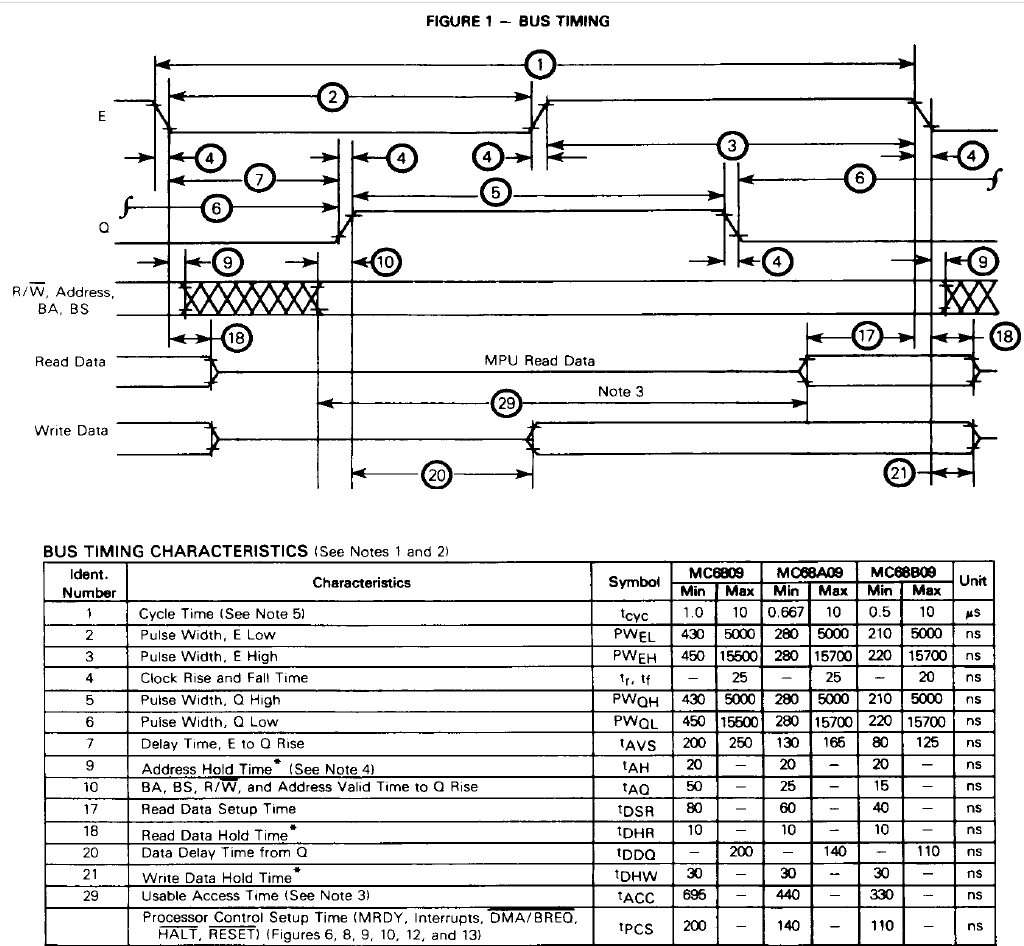Difference between revisions of "LB-6809-01"
Jump to navigation
Jump to search
Blwikiadmin (talk | contribs) |
Blwikiadmin (talk | contribs) |
||
| Line 105: | Line 105: | ||
** Using asm6809 version 2.13 | ** Using asm6809 version 2.13 | ||
** [https://github.com/douggilliland/Retro-Computers/tree/master/6809/M6809_Assembler/asm6809-2.13-w64 asm6809-2.13-w64 Local copy] | ** [https://github.com/douggilliland/Retro-Computers/tree/master/6809/M6809_Assembler/asm6809-2.13-w64 asm6809-2.13-w64 Local copy] | ||
| + | * [https://www.maddes.net/m6809pm/sections.htm MC6809-MC6809E 8-Bit Microprocessor Programming Manual [M6809PM/AD] | ||
| + | © Motorola Inc., 1981] | ||
=== Build 6809 Assembly Code (Windows 64-bit) === | === Build 6809 Assembly Code (Windows 64-bit) === | ||
Revision as of 14:19, 6 September 2024
Features
- 68B09 CPU
- 8 MHZ crystal on card
- CPU runs at 2 MHz
- Reset switch/power monitor
- Address decoder PLD drives RAM/ROM/IO chip selects
- 100x50mm card
Memory Map
- 0x0000-0x7FFF 32KB SRAM
- 0x8000-0x9FFF Free Space (8KB)
- 0xA000-0xBFFF Serial (ACIA)
- 0xC000-0xFFFF 16KB EPROM
Design
68B09 CPU
- 8 MHz clock
- Runs effectively at 2 MHz
CPU
CPU Timing
Clock
Crystal
- Uses CPU internal oscillator
PLD
- ATF16V8B part
- TL866ii Plus Programmer
PLD Listing
Name LB-6809-01_PLD; Partno ATF16V8B; Date 09/02/24; Revision 01; Designer DOUG G; Company LAND BOARDS LLC; Assembly LB680901_U2; Location Rustbelt, US; Device G16V8; /* */ /* Control inputs */ PIN 1 = CLK; PIN 2 = CPUA12; PIN 3 = CPUA13; PIN 4 = CPUA14; PIN 5 = CPUA15; PIN 6 = CPUREAD; PIN 7 = VPB; /* Added as wire on Rev 1 PCB */ PIN 8 = VPA; PIN 9 = VDA; /* Address Decode and Chip Select outputs */ PIN 12 = !ROMCS; PIN 13 = !IOCS; PIN 14 = !MEMRD; PIN 16 = !RAMCS; PIN 18 = RDY; ROMCS = CPUA15 & CPUA14 & VPB; RAMCS = !CPUA15 & VPB /* 0x0000-0x7FFF 32KB SRAM */ # CPUA15 & !CPUA14 & !CPUA13 & VPB; /* 0x8000-0x9FFF Free (8KB */ IOCS = CPUA15 & !CPUA14 & CPUA13 & VPB; /* 0xA000-0xBFFF Serial (ACIA) */ RDY = VPB; MEMRD = CPUREAD & VPB;
Backplane connector
Software
- LB-6809 code examples
- asm6809 - portable cross assembler targeting the Motorola 6809
- Features arbitrarily complex expressions (with most C-style operators available), forward references, macro expansion and conditional assembly
- Output formats are: Motorola SREC, Intel HEX (and others)
- asm6809 Manual
- Using asm6809 version 2.13
- asm6809-2.13-w64 Local copy
- MC6809-MC6809E 8-Bit Microprocessor Programming Manual [M6809PM/AD
© Motorola Inc., 1981]
Build 6809 Assembly Code (Windows 64-bit)
- Run asm6809 in Windows CMD prompt window
[path_to_asm6809.exe_program\]asm6809 loop.asm -H -l -o loop.hex
- -H option creates hex record file to download to programmer
- -l fileName option creates listing file
- -o filename option followed by output file name
Programming using TL866
- Set From File Start(Hex) to 0x0C000 when loading hex record file into TL866i Plus programmer
ROM access test code
- Assemble loop.asm
- my path below, YMMV
..\..\M6809_Assembler\asm6809-2.13-w64\asm6809 loop.asm -H -l loop.lst -o loop.hex
- Source code (loop.asm)
ORG $C000 RESVEC BRA RESVEC ORG $FFFE LBFFE FDB RESVEC ; RESET
- .hex file
:02C0000020FE20 :02FFFE00C00041 :00000001FF
Reference Designs
- MP-09 MONITOR - SWTBUG SBUG monitor for the 6809
- SIMPLE-6809 Software - reference software that runs on SIMPLE-6809
Mechanicals
Rev 2
Checkout
Rev 2 Checkout
- Built
- Worked with NOP Tester
- Got 8 MHz crystal
- E signal is 2 MHz- good
Rev 2 PCB Changes from Rev 1
- Add U1-34 to U2-7 (VPB/E)
- Eliminate oscillator
- Add 8 MHz crystal/caps
- Cheaper and easier to find
- Add 4.7K pullup to U1-40 (ABORT*/HALT) line
- Change resistor values to lighten up Iol
- Beef up power plane connections to J1 and CPU/cap
- Move reset switch to the top of the board (where the oscillator used to be)
Rev 1 Checkout Notes
- Did not build
- Add wire U1-34 to U2-7 (VPB/E)
- Ground XTAL pin on CPU U1-39 (to U1-1 = GND)
- Use BOM for resistor values, not silkscreen
- Add 4.7K pullup to ABORT* line
Assembly Sheet
Rev 2
Rev 1
- Use BOM for resistor values, not silkscreen
- Interactive BOM







